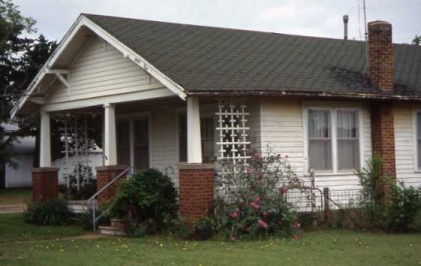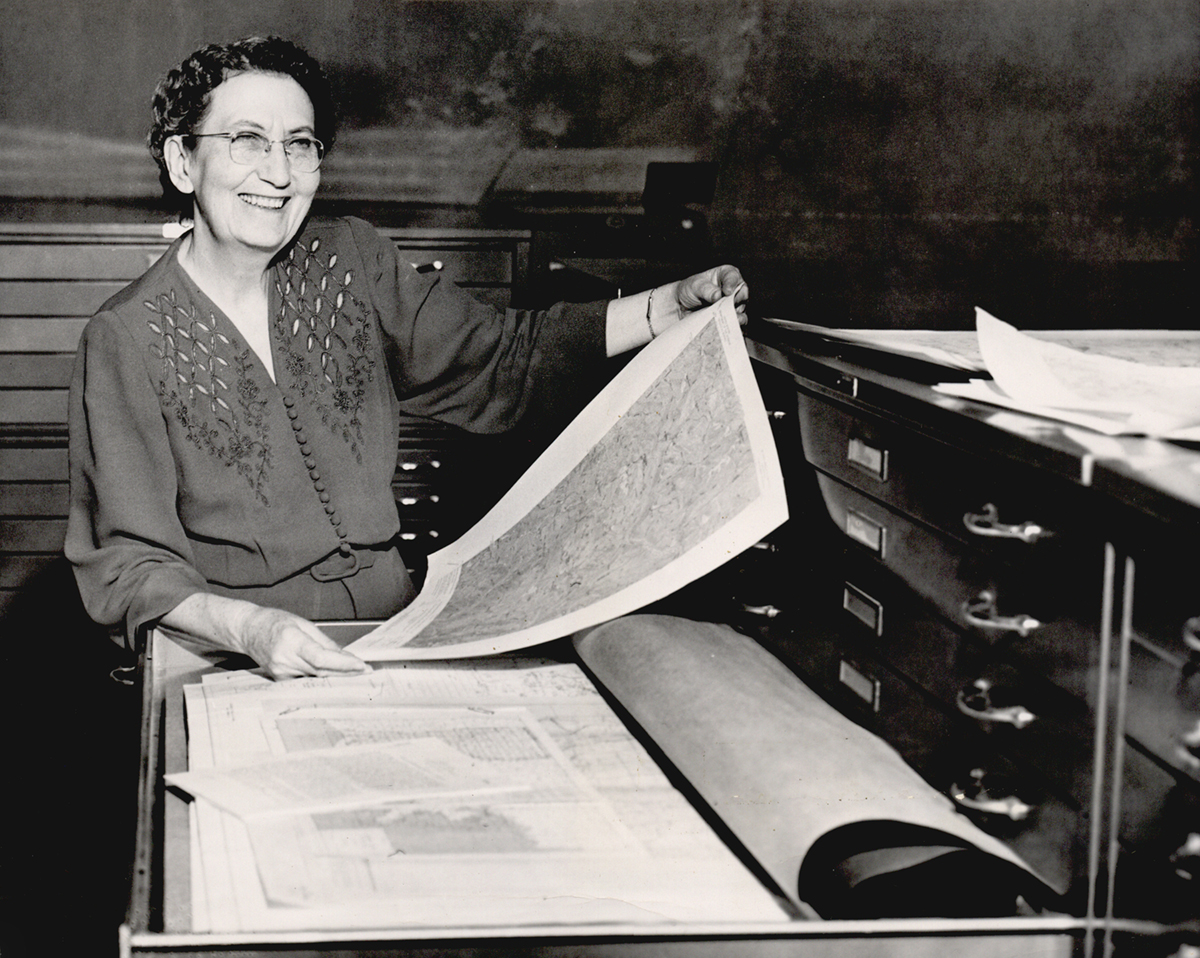
The Encyclopedia of Oklahoma History and Culture
DEBO, ANGIE ELBERTHA (1890–1988).
As a historian of American Indian history, Angie Debo utilized both archival materials and oral history to describe the complicated relationship between tribes and the federal government. Born January 30, 1890, in Beattie, Kansas, to Edward P. and Lina E. Debo, Angie Debo traveled with her parents and her younger brother, Edwin, by covered wagon to Marshall, Oklahoma Territory, as homesteaders in a pioneer community. One limitation of this rural upbringing was that Debo had to wait for the high school in Marshall to open. While she waited, she received her teaching certificate at age sixteen and taught in nearby rural schools. When the Marshall High School finally opened, she was part of the first graduating class in 1913 at the mature age of twenty-three.
After two more years of teaching she attended the University of Oklahoma (OU) and majored in history. Her interest intensified as she took classes from western historian E. E. Dale, the first professor in the department to offer a course on American Indian history. Receiving a bachelor's degree in history in 1918, Debo continued teaching high school for five years while she saved money for graduate school. In 1924 she received a master's degree from the University of Chicago, and her thesis, "The Historical Background of the American Policy of Isolation," was co-published with J. Fred Rippy the same year.
After Chicago, Debo taught in the demonstration school at West Texas State Teachers' College at Canyon, Texas. By the early 1930s she began work on a doctorate under Dale at OU. Her dissertation examined the history of the Choctaws from the perspectives of Choctaw people. At a time when most historians of American Indians wrote from a non-Indian perspective based largely on government documents, she utilized these sources but also incorporated oral history, tribal records, and anthropological studies. At the time, she did not think of her treatment as something new, but later researchers point to The Rise and Fall of the Choctaw Republic (1934) as one of the early examples of an ethnohistorical approach. Her book received the John H. Dunning Prize of the American Historical Association as the most important contribution to studies in American history in 1934.
After almost a decade at West Texas, Debo returned to Marshall to live with her parents and to write a host of books ranging from state and local history to biography to American Indian history. Her most controversial book, And Still the Waters Run (1940), examines the effects of the termination of tribal governments and the forced liquidation of tribal lands among Oklahoma's Five Tribes. Threatened by libel suits from prominent Oklahoma businesspeople and politicians named in the manuscript, the University of Oklahoma Press declined to publish the book. When editor and press director Joseph A. Brandt left the state to take a position at Princeton University Press, her "most important" book found a home. Other significant works include The Road to Disappearance: A History of the Creek Indians (1941) and Geronimo (1976).
During the latter part of the 1930s and early 1940s Debo worked on two Works Progress Administration (WPA) projects. Beginning in 1937 she served as editor of the Indian-Pioneer Papers, a compilation of oral history interviews from Oklahoma's older Indian people and early homesteaders. Many of these interviews became the primary source material for her later study of the Creeks. She accepted her second WPA job in 1940. Her work as director of the Oklahoma guide under the Federal Writers' Project resulted in the publication of Oklahoma: A Guide to the Sooner State (1941), co-edited by John M. Oskison. In the 1950s Debo returned to university employment as a librarian and researcher at Oklahoma A&M (later Oklahoma State University). Her papers are held in Special Collections at the Edmon Low Library at OSU.
With her lifelong commitment to social justice, Debo served on the Oklahoma board of directors of the American Civil Liberties Union. In 1985 Oklahoma honored her work by placing her portrait in the Rotunda of the State Capitol. In 1988, at age ninety-eight, Angie Debo received the Award for Scholarly Distinction from the American Historical Association. She died two weeks later on February 21, 1988.
See Also
AMERICAN INDIANS, CHOCTAW, CREEK (MVSKOKE), EDWARD EVERETT DALE, FEDERAL WRITERS' PROJECT, JOHN MILTON OSKISON, MURIEL HAZEL WRIGHT







